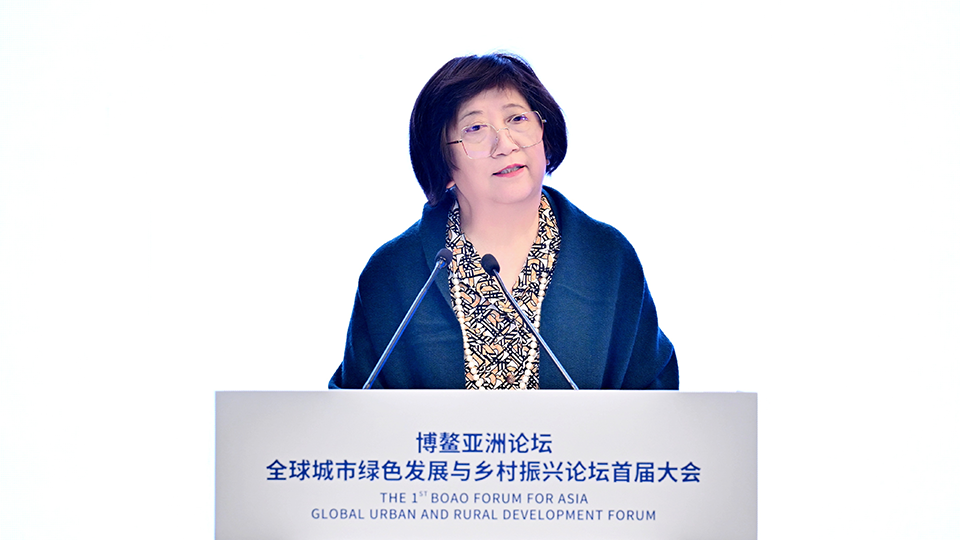Chengdu, May 30 - The Boao Forum for Asia Global Urban & Rural Development Forum (GURD) held a session on "United Nations 2030 Sustainable Development Goals: Role and Contribution of Geographical Indications and WIPO Lisbon System" in Chengdu, Sichuan. Ms. Liu Hua, Director of the WIPO Office in China, moderated the event. Opening remarks were given by Ms. Wang Binying, Deputy Director General of WIPO. Keynote speeches were delivered by Mr. Gao Xiaoyu, Deputy Director General of the Sichuan Administration for Market Regulation, Ms. Wang Chen, Director of the Geographical Indications and Official Signs Protection Division of CNIPA, and Ms. Valérie Pieprzownik, an Expert on Geographical Indications from the FAO.

In her opening remarks, Ms. Wang Binying emphasized that geographical indications (GIs) are a crucial branding tool for producers of high-quality products to enter new markets and improve lives. She highlighted that WIPO's Lisbon System provides a practical and cost-effective solution for the international registration of GIs, covering up to 73 countries. Moreover, with the support of the WIPO-China Funds-in-Trust (FIT), WIPO has implemented technical assistance programs related to GIs in Asia and Africa. She mentioned that after the Forum, WIPO GI team, along with representatives from CNIPA and FAO, would participate in a seminar on Wenchuan GIs to explore potential cooperation in best practices for GI protection and commercialization. WIPO views GIs as a green solution for sustainable development and aims to continue strengthening cooperation with all stakeholders to achieve a better and more sustainable future.
During the keynote speeches, Mr. Gao Xiaoyu stated that Sichuan has achieved significant success in the protection and utilization of GIs, registering 592 GI trademarks and recognizing 296 protected GI products in total, including tea, liquor, fruits and vegetables. By enhancing legal protection, setting standards, promoting regional industrial development, and brand promotion, Sichuan has effectively driven the development of the GIs industry, increased farmers' income, and revitalized rural areas, becoming a vivid practice of how IP can support green development.
Ms. Wang Chen emphasized that GIs are an effective vehicle for promoting regional specialty economies and an important resource for protecting traditional culture. China attaches great importance to the protection of GIs, having signed the China-EU Agreement on GIs and actively promoting mutual recognition and protection of GIs. CNIPA will continue to strengthen the protection of GIs and international cooperation to contribute to sustainable development.

Ms. Valérie Pieprzownik stated that GIs play an important role in FAO's sustainable development strategy. FAO supports the protection of GIs and regional development through guidelines, policy briefs, and technical assistance. She specifically mentioned the "Developing a Roadmap Towards Increased Sustainability in Geographical Indication Systems" released in April, which provides guidance for the protection and governance of GIs, protecting the interests of all stakeholders.
The panel discussion gathered representatives from the GI Division of the Department of Intellectual Property of the Ministry of Commerce and Industry of Lao PDR, the Tequila Regulatory Council, Wuliangye Yibin Co., Ltd., and Anyue Lemon Industry Development Center to discuss the role and contribution of GIs in promoting economic and social sustainable development. About 140 experts and representatives from government departments, enterprises, and academia participated in the session.